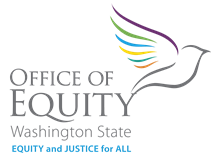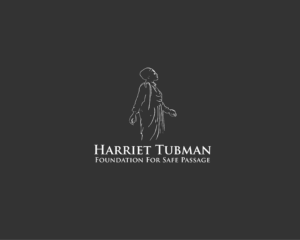Comprehensive Community Reinvestment Plan details 17 grant programs addressing economic development, legal assistance, violence reduction and reentry services
OLYMPIA, WA — The Washington State Department of Commerce today released a Community Reinvestment Plan (Box PDF) identifying a comprehensive set of actions to distribute $200 million to address racial, economic, and social disparities in Washington communities and to individuals disproportionately harmed by the historical design and enforcement of state and federal criminal laws and penalties for drug possession (commonly referred to as the “war on drugs”). The plan developed through community-centered discussion and review, describes 17 grant programs (PDF Fact Sheet) falling across four program areas as directed by the Washington Legislature: economic development, civil and criminal legal assistance, community-based violence intervention and prevention services, and reentry services programs.
“Governor Inslee and the Legislature have established Washington state as a leader in beginning to take steps, centered in community, to mitigate the devastating impacts of historic drug policies and mass incarceration. This plan offers a blueprint for how we can begin to reinvest together in the affected communities and families,” said Commerce Director Mike Fong.
Commerce partnered with the state Office of Equity and the Harriet Tubman Foundation for Safe Passage (HTFFSP) and its researchers, engaging with other community partners to develop the plan, laying out recommendations for how Commerce will invest these funds over the next two years through June 30, 2025. A strong emphasis was placed on reaching out directly to communities impacted by the war on drugs and actively recruiting local advisors and researchers.
To be successful, participants stressed the need to involve people who have experienced incarceration, family separation, and other impacts of over-incarceration for minor drugs possession violations.
Commerce will implement the Community Reinvestment project in partnership with the Office of Equity, Employment Security Department, Office of Civil Legal Aid, and the Governor’s Office of Indian Affairs. Each grant program will have key performance indicators reported using a consolidated accountable and transparent reporting mechanism.
“As the saying goes, ‘the people closest to the issues are the ones best situated to produce the solutions.’ This project is a critical demonstration of our state’s commitment to do things with people instead of to them and to meaningfully address past harm,” said Megan Matthews, Washington Office of Equity Director. “I believe Washington has embraced one of the Office of Equity’s values, Ubuntu — a South African (Nguni Bantu) term meaning humanity, often translated as ‘I am because we are.’ Washington is leading differently. In a time where others are divided, we have come together to invest in communities that have historically been stripped of their resources, opportunity, and power. Together we will advance equity and justice for all in our state.”
The partner agencies aim for this work to be a catalyst for change to traditional practices and systems. Implementation will integrate equity considerations in all outreach and contractual programs and practices.
 «These resources are not just investments; they’re seeds of hope that will nourish families across the state, fostering growth and creating a brighter future for generations to come,” said Dr. Jesse Miller, Harriet Tubman Foundation for Safe Passage Founder and CEO.
«These resources are not just investments; they’re seeds of hope that will nourish families across the state, fostering growth and creating a brighter future for generations to come,” said Dr. Jesse Miller, Harriet Tubman Foundation for Safe Passage Founder and CEO.
Funding allocations by program area are $138 million for economic development grants, $30 million for community-based violence intervention and prevention services, $12 million for reentry services and $8 million for civil and criminal legal assistance, with the remaining $12 million used to support local advisory teams, build capacity, and provide technical assistance to impacted individuals and communities.
“These investments will begin to address racial, economic and social disparities within communities across the state, but continuing these investments beyond the biennium will be necessary to stabilize the programs and broaden their reach, and to measure the long-term success of this project,” Fong said.
Research supporting the plan indicates the government-created laws and punishments for drug offenses unjustly targeted specific communities and individuals in the United States. In Washington, the disparate impact was on Black, Latino and Indigenous neighborhoods and people, perpetuating existing disparities within those populations. Mass incarceration separated and continues to separate families, just as criminal records and legal financial obligations exacerbate economic disparities and challenges associated with access to housing, employment, education, health care and other fundamental pillars that create wealth and family stability.
The two-year, $200 million Community Reinvestment project will begin to redress some of this inequity. However, officials say community voices have been loud in advocating for funding beyond the current two-year window in order to make a significant long-term difference.
Some of the grant programs included in the Community Reinvestment Plan are expansions or spinoffs from existing programs meaning implementation will be relatively quick and easy. For example, expansion of reentry and legal services across the state are two Community Reinvestment programs currently being rolled out. Other of the programs recommended in the plan represent new ideas, requiring more time and collaboration to implement. These include a number of the subsidized lending and financial assistance programs, which will be designed and implemented through the winter months.
Those interested may sign up for Commerce’s mailing list to get the most updated information on the Community Reinvestment Plan, funding opportunities, and learn about ways to engage in program co-creation.
###
